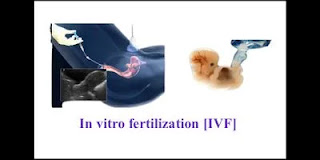Much information about in vitro fertilization (IVF) is now available to the public, which has made it more accessible, but there are still some lesser-known aspects of the treatment. People tend to think that IVF is a solution or remedy for all infertility problems, and that there is almost a guarantee of success if one accepts this treatment method. However, this is not true. Even the best IVF center in Gurgaon cannot promise you success in IVF, despite being better than most other fertility centers in the country. On average, only about 25-35% of couples who receive this treatment are able to have a child. Why this is! This is because many factors play a role in a successful IVF cycle, and some of them are even beyond human control...
So if you are planning to have treatment or have had it fail, here are some possible causes of failure that you should know about.
The common causes for IVF failure
- A common cause is a lower egg count; sometimes even ovulation drugs fail.
- Poor egg quality is another possible cause
- A lower sperm count also reduces the chances of fertilization
- Poor sperm quality (low motility, deformed sperm or damaged sperm) can cause problems
- Poor embryo quality or wrong selection of embryos can lead to premature abortion
- Suboptimal laboratory conditions can lead to weakening or even death of embryos before implantation
- Inaccurate and inefficient egg retrieval and/or embryo implantation are 2 critical errors in IVF that can cause cycle failure; implantation of an embryo outside the uterus can lead to an ectopic pregnancy that will soon end in miscarriage
- A woman's age is a crucial factor, women under 35 have about a 40% chance of success, while women over 42 only have a 4 to 5% chance of conceiving.
- An unhealthy lifestyle can also lead to IVF failure
- About 12% of IVF failures are attributed to unknown causes
IVF fails even good embryo
Although a "good" embryo is necessary for continued pregnancy, it does not always guarantee IVF success. This is disappointing for digestion, but it can happen for 3 reasons. One, as mentioned above, poor implantation of even a healthy embryo will lead to IVF failure. Second, an apparently "good" embryo was thus declared by the embryologist based on morphological markers, which can be misleading, as the external form may not reveal qualitative problems. Sometimes an embryo has chromosomal abnormalities that cannot be detected based on its external appearance and require special screening tests to be diagnosed.
The third reason is a non-receptive uterus. Susceptibility can be caused by a condition such as endometriosis, fibroid, etc., or it can be the result of overactive immune cells causing the uterus to attack the embryo. Both of these conditions cause early miscarriage or even implantation failure.
How to guarantee IVF accomplishment after it has failed previously?
Most couples experience difficulty in their first IVF cycle, some may even need 3 to 5 cycles to conceive. But no matter what the reasons were for earlier unsuccessful IVF cycles, you can still have hope for the future. You need to talk to your doctor about what happened. They may suggest various tests like laparoscopy, preimplantation genetic screening (PGS), endometrial receptivity test (ERA), sperm DNA fragmentation test, etc. to confirm the cause of failure. You will then need to work with your doctor to avoid these (or those) mistakes or treat underlying conditions before proceeding with the next IVF cycle. It is also better to take a break between two cycles, this will give the body and you the necessary time to recover from previous failed attempts and prepare for the next one. Finally, don't apply too much pressure, as anxiety can reduce your chances of conceiving. Just relax and try again if it helps, people have been known to get pregnant naturally after a few failed IVF cycles.


Post a Comment